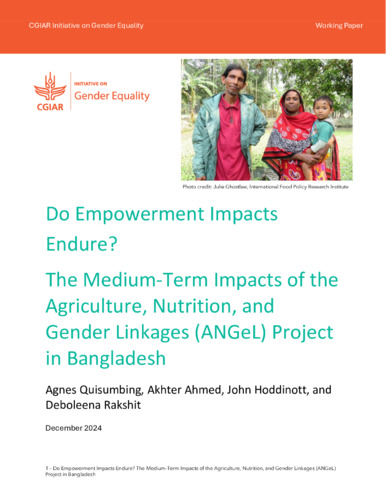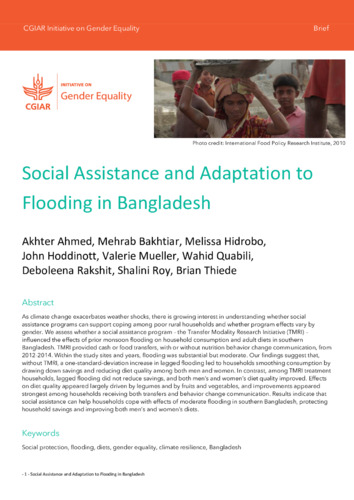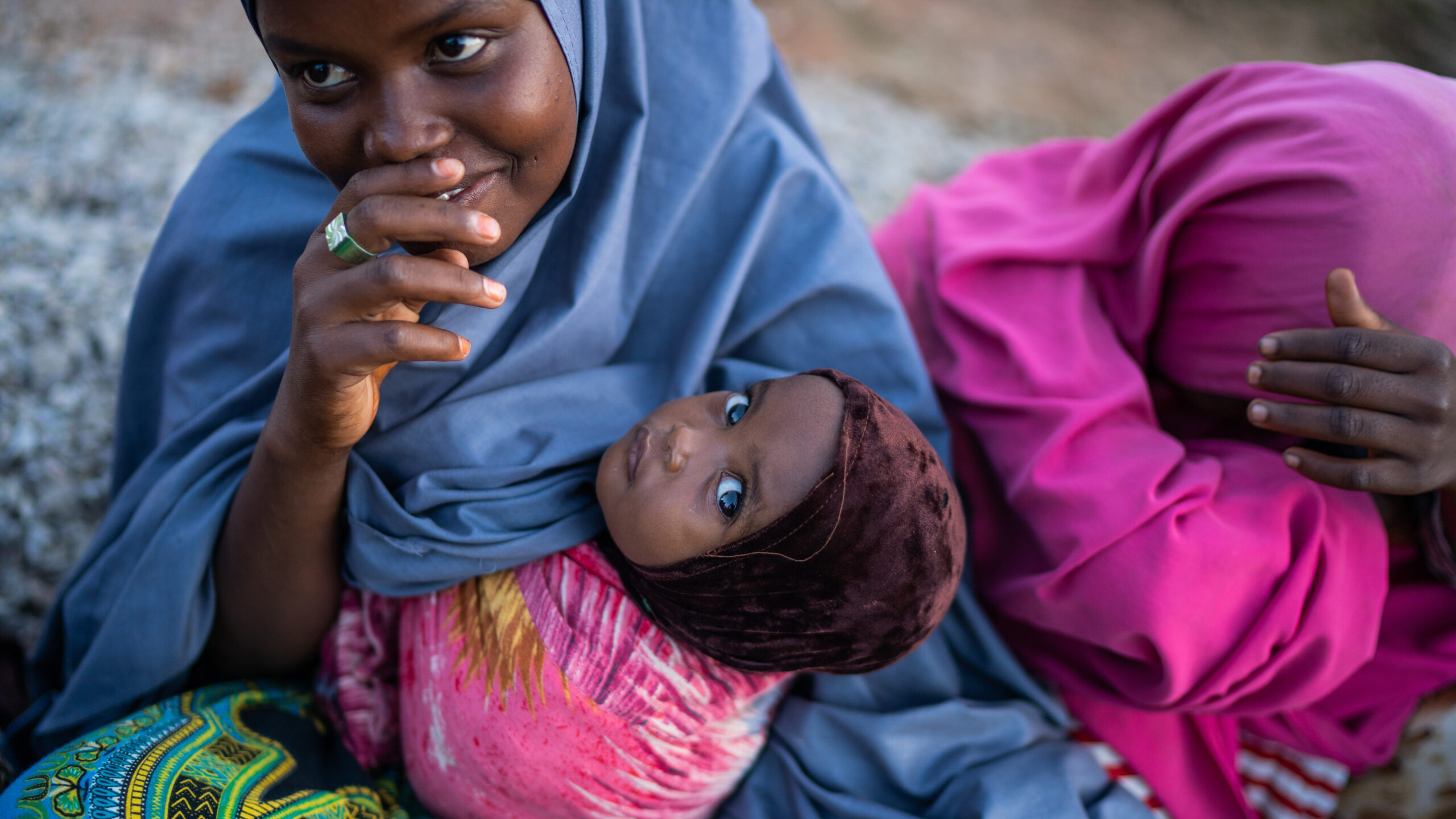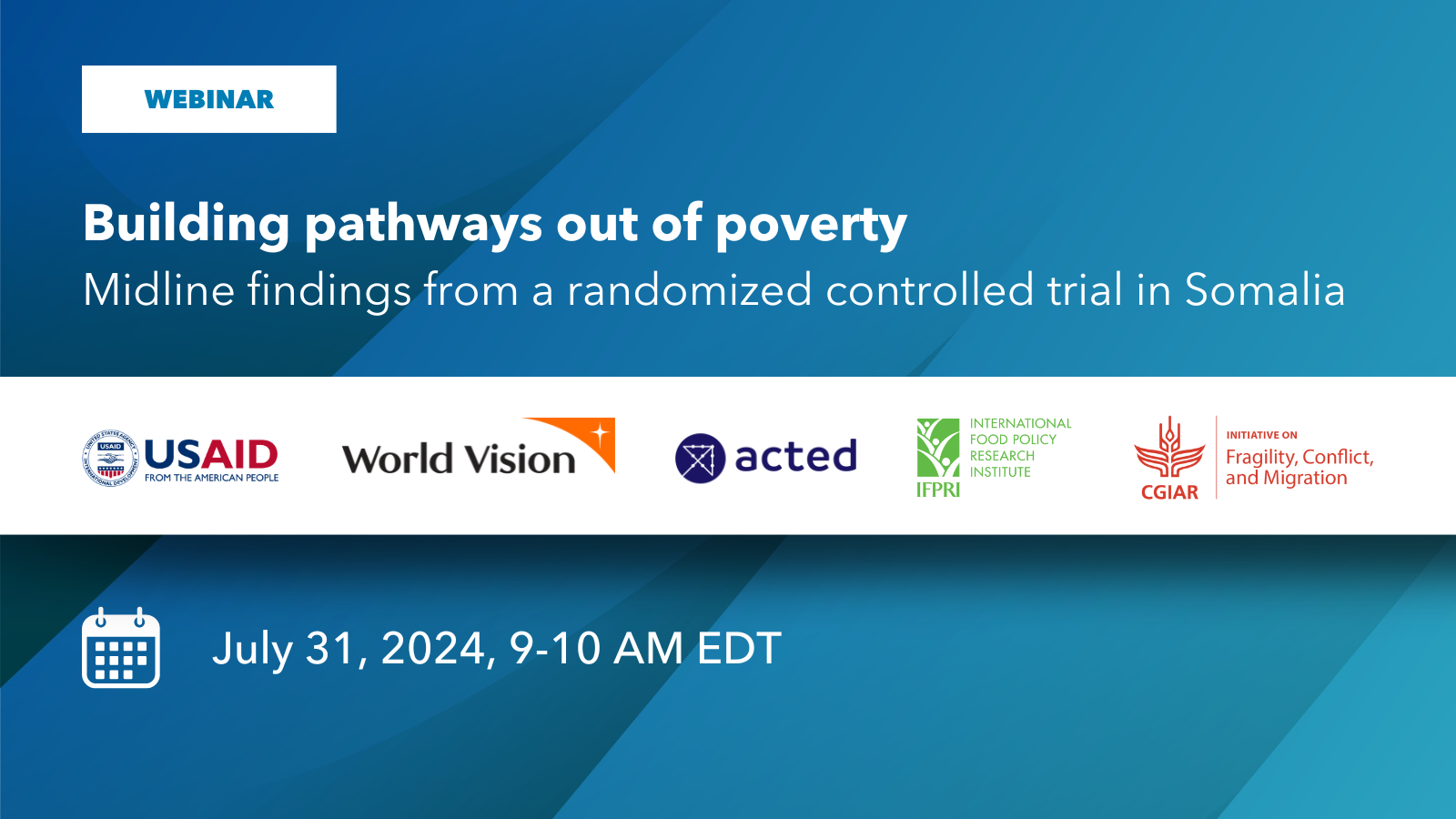Evolution of intimate partner violence impacts from cash transfers, food transfers, and behaviour change communication: Mixed-method experimental evidence from a nine-year post-programme follow-up in Bangladesh
Cash or food transfers can reduce intimate partner violence (IPV), but knowledge gaps remain on how impacts evolve over time, and the role of complementary ‘plus’ activities and contextual factors. We conducted a mixed-method analysis of how the Transfer Modality Research Initiative in Bangladesh affected IPV over time. The programme was implemented from 2012 to 2014, following a randomised controlled trial (RCT) design, across Northern and Southern Bangladesh. Intervention arms included monthly cash or food transfers, with or without complementary nutrition behaviour change communication (BCC). We estimate post-programme impacts on IPV using quantitative data collected in 2014–2015, 2018, and 2022, and combine this with qualitative data collected in 2023 to explore how and why IPV impacts evolved over time and the role of contextual factors. In the North, combining cash with BCC led to sustained IPV reductions in each post-programme round, while cash alone reduced IPV in 2022 but not the previous two rounds; food transfers showed no post-programme impacts. In the South, combining food with BCC led to post-programme IPV reductions in 2014–2015; no intervention sustained IPV reductions thereafter. Sustained IPV reductions are primarily driven by improved household economic security and emotional well-being. Other pathways – family relationships (including in-laws’ roles), women’s empowerment, and social and community support – contributed to changing couples’ relationships during the programme but became less salient after the programme ended. Contextual factors, including demographic changes, climate-related changes, external projects and norms condoning IPV appear to influence the sustainability of impacts. Results suggest that ‘plus’ programming was key to sustaining IPV impacts soon after the interventions, but less so by nine years post-programme, as economic security increasingly drove impacts. More mixed method research is needed from the outset to unpack if and how pathways to IPV reduction can be sustained in different contexts over time.
Authors
Lokot, Michelle; Sultana, Nasrin; Hidrobo, Melissa; Ahmed, Akhter; Hoddinott, John; Rakshit, Deboleena; Roy, Shalini; Ranganathan, Meghna
Citation
Lokot, Michelle; Sultana, Nasrin; Hidrobo, Melissa; Ahmed, Akhter; Hoddinott, John; Rakshit, Deboleena; Roy, Shalini; and Ranganathan, Meghna. 2025. Evolution of intimate partner violence impacts from cash transfers, food transfers, and behaviour change communication: Mixed-method experimental evidence from a nine-year post-programme follow-up in Bangladesh. Social Science and Medicine 371(April 2025): 117901. https://doi.org/10.1016/j.socscimed.2025.117901
Country/Region
Bangladesh
Keywords
Asia; Southern Asia; Behaviour; Cash Transfers; Communication; Domestic Violence; Social Protection
Record type
Journal Article









